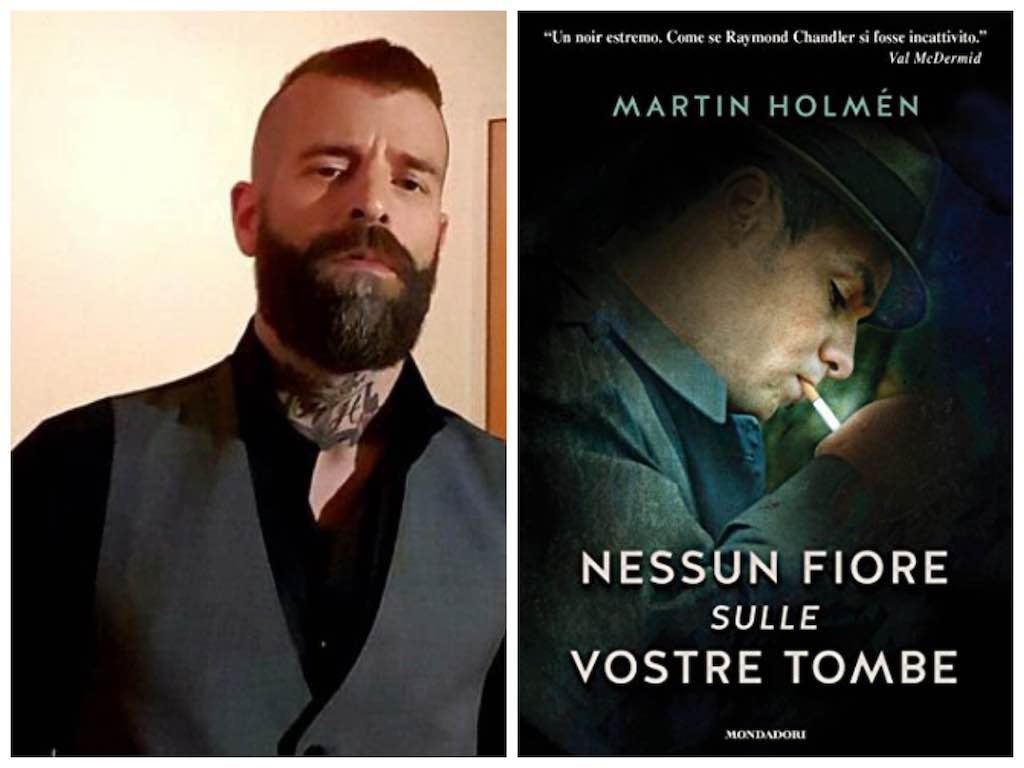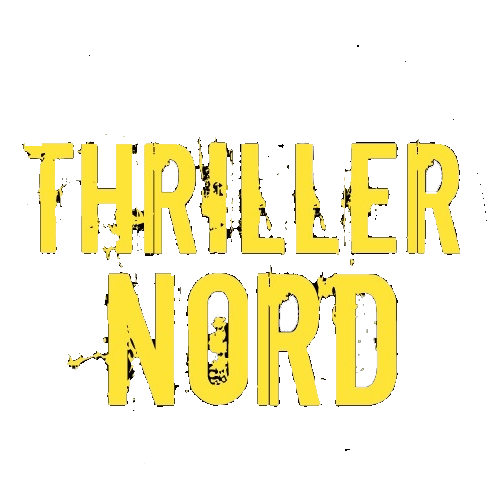A tu per tu con l’autore
A tu per tu oggi con Martin Holmén, scrittore svedese che ha debuttato con il noir Nessun fiore sulle vostre tombe, primo volume di una trilogia che ha come protagonista l’ex pugile Harry Kvist.
“Nessun fiore sulle vostre tombe” è un romanzo hard-boiled, genere molto particolare e di nicchia. Quali sono gli autori “pulp”che ti hanno ispirato?
Giganti noir degli anni ’30 come Chandler e Hammett, ovviamente, e scrittori di pulp come Mickey Spillane e Ross MacDonald. Tuttavia Jim Thompson è il mio preferito sebbene sia poco conosciuto in Svezia. Devo però ammettere che raramente leggo romanzi gialli.
“Clinch “ is a typical hard-boiled novel, a very niche and particular literary genre.
Which pulp Authors were you inspired by?
Noir giants from the 30s like Chandler and Hammett of course and pulp writers like Mickey Spillane and Ross MacDonald. I must say that Jim Thompson is my favorite though. He is pretty unknown in Sweden. With that said I admit i rarely read crime.
Il protagonista Harry Kvist è un ex pugile che si guadagna da vivere facendo a pugni per denaro. Da appassionata di MMA ti chiedo: hai scelto la professione di Kvist perché segui il pugilato oppure era necessaria per sviluppare l’idea che avevi in mente?
Guardo molto MMA e boxe. Purtroppo io non sono portato per il classico pugilato, ma ho praticato molto kickboxing e il muay thai e credo che ricomincerò a farlo. E’ un esercizio fantastico! Comunque non ho fatto grandi ricerche o forzture, mi è venuto naturale.
Harry Kvist, the protagonist, in an ex-boxer who makes is living boxing for cash. As I am fond of MMA, I would like to ask you if you chose Kvist’s profession because you are a fan of boxing, or would it be necessary so to develop the idea that was your plan?
I watch a lot of MMA and boxing. I’m not built for classic boxning I’m afraid but I’ve done a lot of kickboxing and muay thai and I think I will pick it up again. It’s great exercise! So no I didn’t research it very much. It sort of came naturally.
La storia è ambientata in Svezia, però le atmosfere assomigliano molto a quelle americane. Era un effetto voluto? Se si, per quale motivo?
Per qualche ragione, all’estero ogni crime novel proveniente dalla Scandinavia, viene chiamata thriller nordico, allora ho voluto giocarci un pò su e cercare di rileggere in chiave svedese le tradizioni americane degli anni ’30 e ’40. Avevo una visione ben chiara di ciò che avrei voluto ottenere e devo dire che ci sono andato molto vicino.
The story is set in Sweden, but moods are very similar to American ones. Was it a desired effect? If so, what’s the reason?
Abroad every crime novel from Scandinavia is called ”nordic noir” abroad for some reason so I wanted to play around with that and merge the American tradition from the 30s and 40s with a Swedish expression. I had a very clear vision of what I wanted to do and think I got pretty close.
Insegni storia e svedese in una scuola di Stoccolma, cosa ti dicono i tuoi studenti riguardo questa tua nuova carriera da scrittore?
Pensano che sia un’ottima cosa! In questo periodo sto insegnando anche scrittura creativa e sto cercando di scrivere un breve racconto con i miei studenti.
You teach History and Swedish in a Stockholm school, what are your students telling you about your new Writer’s career?
They think it’s nice! Actually I’m teaching creative writing now as well and will try to write a shorter novel together with my students.
Hai per caso in programma di scrivere un thriller storico?
Ho un milione di idee in testa! Dovrete pazientare un pò per saperne di più.
Are you, by any chance, planning to write an historical thriller?
I have a million different ideas! You’ll have to wait and see!
Quali sono i tuoi colleghi autori del nord Europa che prediligi o ai quali ti sei ispirato?
In quell’epoca non c’erano scrittori di gialli, perciò leggo molto di ciò che qui da noi chiamiamo ”scrittori della classe lavoratrice“, cioè scrittori autoditatti che facevano parte del movimento socialista dei primi anni del 1900, che cercavano di portare alla luce le disuguaglianze che caratterizzavano la società svedese di quel periodo.
Among North-Europeans‘ Authors, which would you prefer or which were you inspired by?
We didn’t have any crime writers back in the day so I read a lot of what we here simply call ”the working class writers”, autodidact writers who were part of the socialist movement in the early 1900, trying to point out the inequalities of Swedish society back then.
Martin Holmén
Anastasia Frollo
Traduzione di Manuela Fontenova e Sabrina De Bastiani
Acquista su Amazon.it:

